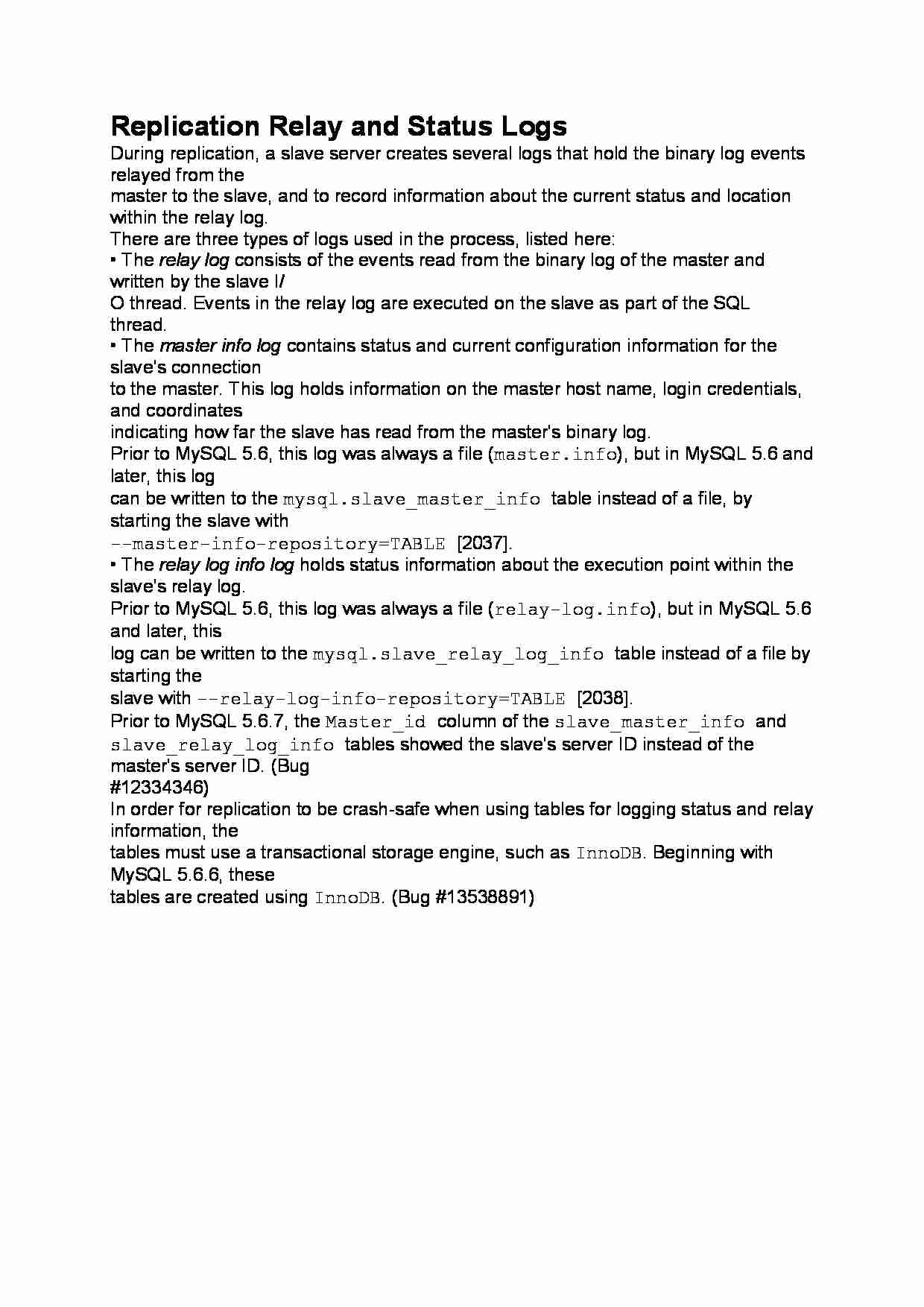
Replication Relay and Status Logs
During replication, a slave server creates several logs that hold the binary log events relayed from the
master to the slave, and to record information about the current status and location within the relay log.
There are three types of logs used in the process, listed here:
• The relay log consists of the events read from the binary log of the master and written by the slave I/
O thread. Events in the relay log are executed on the slave as part of the SQL thread.
• The master info log contains status and current configuration information for the slave's connection
to the master. This log holds information on the master host name, login credentials, and coordinates
indicating how far the slave has read from the master's binary log.
Prior to MySQL 5.6, this log was always a file (master.info), but in MySQL 5.6 and later, this log
can be written to the mysql.slave_master_info table instead of a file, by starting the slave with
--master-info-repository=TABLE [2037].
• The relay log info log holds status information about the execution point within the slave's relay log.
Prior to MySQL 5.6, this log was always a file (relay-log.info), but in MySQL 5.6 and later, this
log can be written to the mysql.slave_relay_log_info table instead of a file by starting the
slave with --relay-log-info-repository=TABLE [2038].
Prior to MySQL 5.6.7, the Master_id column of the slave_master_info and
slave_relay_log_info tables showed the slave's server ID instead of the master's server ID. (Bug
#12334346)
In order for replication to be crash-safe when using tables for logging status and relay information, the
tables must use a transactional storage engine, such as InnoDB. Beginning with MySQL 5.6.6, these
tables are created using InnoDB. (Bug #13538891)
... zobacz całą notatkę



Komentarze użytkowników (0)